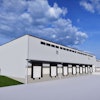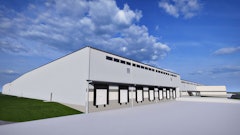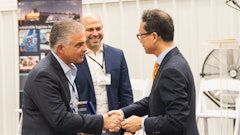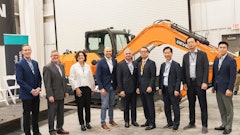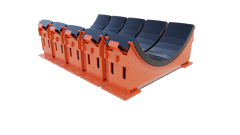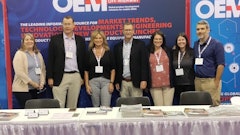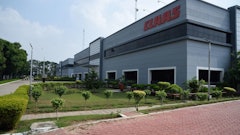Freudenberg Sealing Technologies’ breakthrough laser welding process, which eliminates up to 73% of the engineered waste produced during traditional stamping operations, has won a coveted Manufacturing Leadership 100 Sustainability Award from Frost & Sullivan’s Manufacturing Leadership Council.
Freudenberg’s Laser Welded Narrow Band Forming technology, also known as SUL (Schmalband-Umform-Laserschweiß), was recognized by the Council as technology that is shaping the future of global manufacturing. The process, developed and in use in the company’s Weinheim, Germany plant, offers Freudenberg impressive sustainability advantages including faster setup, safer operations and elimination of up to 1,800 tons of scrap steel per machine per year.
“We are delighted to receive ML100 award recognition for our SUL technology,” says Luis Lorenzo, Vice President, Advanced Product Engineering, Freudenberg. “This truly is revolutionary technology that is helping Freudenberg achieve its stated objective of zero manufacturing waste over the next decade. Our customers derive terrific benefits from this process – namely, high-quality, precision steel components that require less time to produce and are better for the environment.”
With a clear focus on addressing environmental challenges like dwindling resources, government regulations, global warming, population increases and clean energy, Freudenberg Sealing Technologies has implemented a strategic sustainability roadmap that will guide its long-term efforts to reduce energy usage, lower its carbon footprint and produce greener, cleaner products and processes. Groundbreaking technologies like SUL will play a crucial role in its sustainability efforts. The process has previously won two manufacturing awards for innovation in Europe.
The SUL process is used in the production of steel rings which improve the rigidity of radial shaft seals. Traditional manufacturing methods stamp the “L” and “C” shaped rings from large sheets of metal. As the ring size increases, more scrap is produced during stamping and in subsequent trimming and finishing operations.
The SUL process used a narrow band of steel rather than a sheet. The steel band is cut to length by a laser and wrapped into a ring. The laser welds the two ends of steel together forming a solid bond and the ring is then formed to final shape through rolling and calibration.
The SUL process eliminates up to 73% of engineered scrap – or more than 1,800 tons of scrap steel per machine per year – manufactured in the production of radial shaft seals. Additionally, because the process does not use the petroleum-based lubricants used in traditional stamping operations and does not require that its parts be treated in a chemical bath after formation, it facilitates additional important environmental savings.
Equally important, the SUL process is quieter than traditional stamping operations, employs lighter, easier-to-use tooling and reduces energy consumption in the plant.
“Freudenberg’s Guiding Principles dictate that the company pursue constant innovation, protect the environment, ensure safety in the workplace and provide value to its customers,” Lorenzo says. “The SUL process is a perfect example of how the company is achieving all of these objectives by developing groundbreaking technologies and processes.”
Now in their ninth year, the Manufacturing Leadership 100 (ML100) Awards honor companies and individuals that are shaping the future of global manufacturing. Nominations across 11 categories are vetted and evaluated by a panel of expert judges. Seven of the ML100 categories celebrate outstanding projects undertaken and completed by a manufacturing company. Four categories recognize the achievements of individual manufacturing executives.
Manufacturing Leadership 100 Award winners will be honored on May 15 at a gala celebration that follows the ninth annual Manufacturing Leadership Summit in Palm Beach, FL, a gathering of manufacturing leaders from around the world. The theme for the 2013 Summit is “Bold Ideas for a Better Future.”

